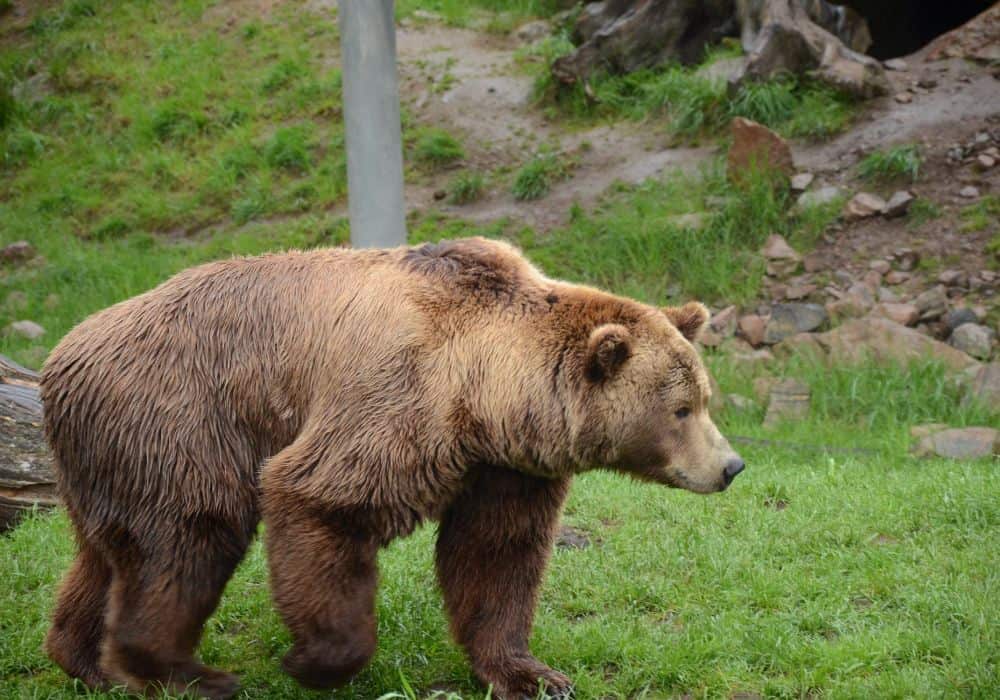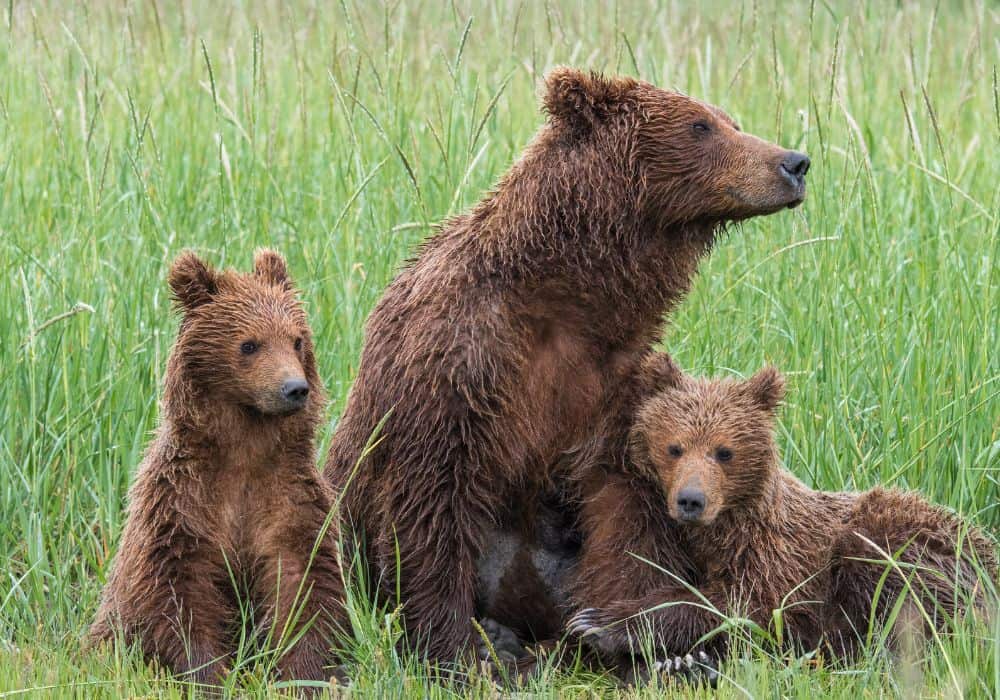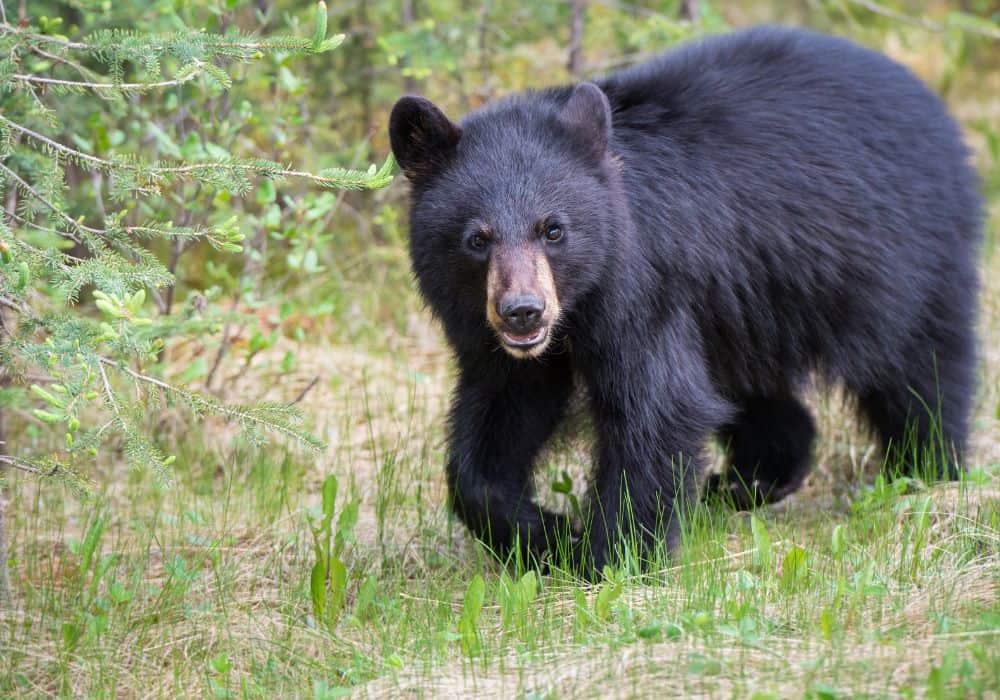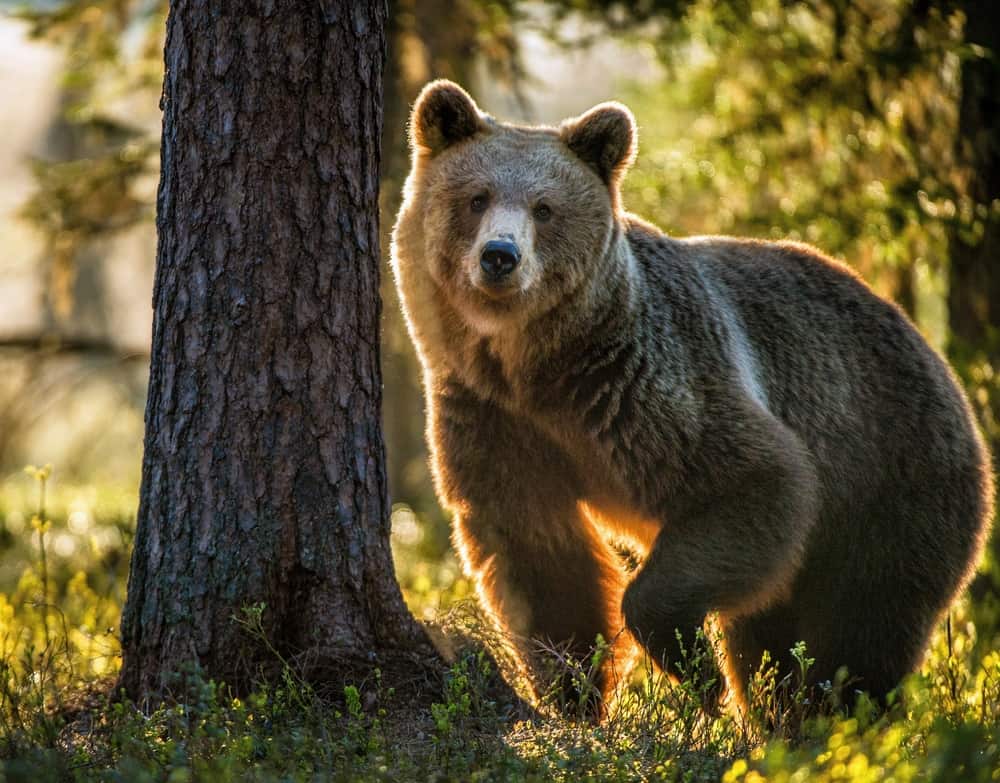Camping in the woods and exploring bear country for the first time is quite an experience. There’s an adrenaline rush that comes with the thought of seeing grizzlies and black bears in all their glory from afar. But for your safety, you don’t want them to get too close.
People’s kneejerk reaction to seeing a bear is to be frightened. And we get it—although bear attacks are rare, seeing a big, powerful creature crawling toward you can be scary. So, before hitting the woods, it’s best to know how to repel bears first.
One way to keep bears at a safe distance from you is to use the power of scents. There are specific smells that repel bears and ones that attract them. It’s important to know the difference to make sure there aren’t any encounters with bears that are too close for comfort.
Today, we’ll fill you in on how to use smells to deter bears from coming too close. Keep reading to learn more.
Bears Have an Outstanding Sense of Smell

Before we take a deep dive into what scents repel bears, it’s important to understand how their sense of smell works. A bear’s sense of smell is incredibly sensitive and is stronger than most game animals. It can smell you (and your food) from miles away and know exactly where you are.
So, before you set out on your hike and camping excursion in the woods, it’s best to be aware of the scents that attract bears. That way, you know what to avoid doing and bringing if you want bears to steer clear of your campsite during your trip.
Scents that attract bears
One of the scents that attract them the most is garbage. The strong, pungent odor of food scraps in trash cans signals to them that there is a food source nearby. So, even if the smell is unpleasant, they will come closer to it.
In line with this, food is another thing that bears will immediately sniff out and walk toward. If a bear does find you and your food stash, do not feed them. This will embolden them to stay in the area and ask for more food, which can put you and everyone with you in a precarious situation.
Bears are also great at smelling perfume, deodorant, and other fragrances. They associate it with human beings. So, if they smell these nice scents, they’ll look for the group of people wearing these products. If you can, leave your lotions, colognes, and cosmetics at home.
This one is oddly specific, but bears love the smell of mint. Don’t bring any minty products with you, whether it’s toothpaste, floss, or soap.
Learn more about the different scents and aromas that might attract bears to your campsite by watching this quick video:
7 Smells That Repel Bears
It can be dangerous to antagonize and demonize bears. They’re lovely creatures that are charming and have their place in our ecosystem.
It’s unfair to repel them with things that can end up harming them—like an electric fence—especially since most bear encounters don’t even end in injury.
Of course, it’s always better to err on the side of caution and prevent any encounters with grizzly bears at all. One way to do it without hurting yourself or the bears you see is by discouraging them from getting closer to you through powerful scents.
Here are seven kinds of smells that repel bears:
1. Pine-based cleaners
While bears love mint scents, they hate anything with a pine scent. It would be wise to bring a bottle of Pine-Sol or some pine oil with you on your trip to the woods. Dilute these in water and pour the mixture into a spray bottle.
Before you sleep at night, spray some of your pine-scented concoction all over your garbage bags, trash bins, and the general area around your camp. This will deter bears from coming near you. It also helps mask the smell of food, so bears won’t even realize there’s a food source nearby.
Speaking of cleaning products, bears also hate the smell of Lysol, which is quite strong and overbearing, too. If you don’t have any Pine-Sol at home, you can also see if Lysol will work for you.
2. Bear pepper spray
Commercially produced bear sprays are made with red peppers. These peppers are rich in capsaicin—the ingredient that makes them hot and spicy. One whiff of this and even humans will be deterred because it temporarily irritates the eyes and throat. It’s a great way to drive away bears.
If you see a bear that is aggressively coming toward you, whip out some bear spray and do a quick spritz into the air. Don’t spray for seconds on end, as this can injure both you and the bear. One spray is all it takes for the bear to react and back off. Any more than that is inhumane.
Bear sprays are usually long-range, so you can spray it into the air even if a bear is around 20-30 feet away from you.
One quick spray of bear spray is more than enough to deter a bear from coming closer. Check out how fast and effective it is at repelling bears by watching this man’s encounter with a bear, and how pepper spray saved him:
3. Spices with strong scents
As with pepper spray, bears react quickly to spices and herbs with strong scents because of how sensitive their sense of smell is. Spices like cayenne pepper, garlic, and cinnamon can easily deter bears from coming close.
In the case of cinnamon and pepper, you can simply sprinkle the ground-up spices into the area you’re staying. Garlic emits its powerfully pungent odor best when chopped up or crushed. Place it in a few small bowls or containers and distribute those across your campsite.
Note that these smells may diminish the longer you have them out. Make sure to reapply the herbs and powders at least once a day.
4. Ammonia
Ammonia is known to have a strong scent that can irritate bears, so they strongly dislike them. The smell is so overwhelming that bears will likely turn away from your direction as soon as they take a whiff of it.
To use ammonia as a bear deterrent, soak some rags in ammonia-based cleaners and hang them up all over your campsite. You can also bring big containers of ammonia and leave them open near your campsite at night.
5. Bleach

Bleach is yet another chemical with a strong smell that can deter bears. But because bleach is so strong and potent, it can be harmful even to you if you choose to work with it. If you want to use bleach to deter animals like bears, always dilute it in water.
Mix some water and bleach in a spray bottle. The ratio should be ten parts of water for every one part of bleach. Then, go around your campsite and spray the mixture in the general area, focusing on garbage cans. Don’t spray it directly toward plants, as this can kill them.
6. Apple cider vinegar
Vinegar seems to be a smell that universally repels animals and even humans. Its sour, pungent odor is enough to get bears running in a different direction.
Dilute some apple cider vinegar in some water and put the mixture in yet another spray bottle. Spray it all over the possible points of entry for bears, as well as your food storage and trash cans. Reapply as needed.
Keep in mind that spraying apple cider vinegar around your campsite may leave your sleeping quarters, clothes, and more smelling like the stuff. It may not be ideal, but safety always comes first when you’re hanging out in the woods.
7. Mothballs

Lastly, we have mothballs. Although these small, solid balls are made with natural insect repellents like naphthalene and paradichlorobenzene, they work just as well on bears, too. The strong fumes they emit will easily repel these creatures and scare them off.
However, mothballs may not be the best for the environment. The fumes it emits can be harmful to the woods and other, less scary animals that may be lurking about. This can kill your chances of seeing other wildlife while you’re camping. So, only use mothballs to deter bears as a last resort.
Conclusion
If you want to repel bears from coming close to your campsite in the woods, using scents is a fantastic option. It’s an easy way to drive bears out without agitating them or putting them in harm’s way.
Choose any of the scents above to bring with you on your trip to the woods to make sure bears don’t get dangerously close. Always keep in mind the scents that attract them as well, so that you don’t make the mistake of leading a bear straight to where you are.
Have any more tips about how to deter bears and keep them away on a camping trip? We’d love to hear them! Comment them down below, as well as any other tips you’d like to share with people who are worried about encounters with bears.
